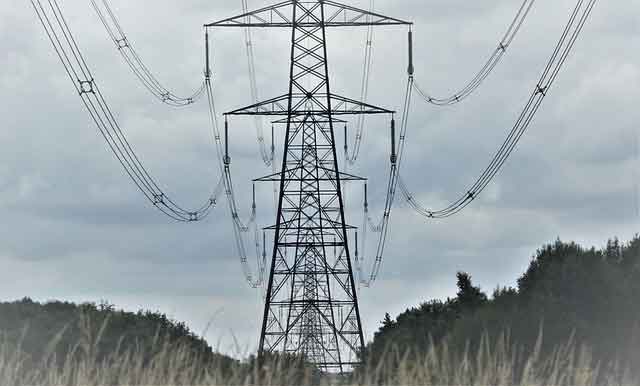Duke customers argue they are owed more
RALEIGH, NORTH CAROLINA - A lawyer for utility customers argued that Duke Energy Corp. ratepayers were given short-shrift on savings the utility agreed to pass on from its merger last year with Ohio's Cinergy Corp.
James West, a lawyer representing the Carolina Utility Customers Association, told the N.C. Utilities Commission that Duke's method for projecting its first five years of merger savings was flawed and that ratepayers could be entitled to millions more. He cited quarterly reports filed by Duke with the commission that show greater savings following the merger than Duke had forecast.
The Charlotte-based utility says it doesn't owe more and that its estimates have proven accurate. The quarterly reports include savings from other parts of its business that don't affect ratepayers, the company said.
As part of the merger, Duke agreed to pass on five years of estimated merger savings in a one-year rebate, which customers saw on lower power bills over the 12 months ending July. Duke Energy Carolinas President Ellen Ruff testified that Duke took a risk in giving ratepayers back savings early: "The risk was on us to achieve the savings," she said.
At issue now is whether Duke accurately forecast those original merger savings and whether the utility should continue passing on more rebates each year to its customers. The savings would be reflected in new base rates set to take effect Jan. 1. The April 2006 merger with Cinergy gave Duke a five-state territory and transformed it into one of the nation's largest power companies.
As part of the deal, approved by N.C. commissioners last year, Duke agreed to give customers a $117.5 million rebate. The savings were projected to come from eliminating jobs, buying fuel in larger bulk supply, among other benefits from a streamlined operation with more customers. The customers share of merger savings is supposed to be 42 percent.
Shareholders get 58 percent and see the savings reflected in an improved bottom line and healthy dividend. Following the merger, the commission ordered Duke to revisit its base rates this year. The utility agreed earlier this month to decrease its base rate 5.9 percent overall and 3.85 percent for residential customers - equal to more than $3 a month off the average N.C. residential power bill of about $80.
Representatives of big industrial power users and consumer advocates say Duke should cut rates by another 1.4 percentage points. That would include passing on an extra $48 million in lower rates from annual merger savings beyond what Duke has already paid. That would equal another $1.12 off the average residential bill and more for industrial customers.
Duke says it has it has met its obligation and is done paying back merger savings to customers.
Ruff and West had some testy exchanges over several hours of testimony. West called into question whether Duke had properly listed merger expenses or front-loaded them so customers would not see as big a rebate.
Ruff and her representatives said the accounting was proper and that it was the shareholders turn to reap some of the merger benefits. The utilities commission's ruling will come most likely by the end of the year.
Related News

Norway Considers Curbing Electricity Exports to Avoid Shortages
OSLO - Norway, one of Europe’s biggest electricity exporters, is considering measures to limit power shipments to prevent domestic shortages amid surging prices, according to local media reports.
The government may propose a rule to limit exports if the water level for Norway’s hydro reservoirs drops to “very low” levels, to ensure security of supply, said Energy Minister Terje Aasland, according NTB newswire. The limit would take account of seasonality and would differ across the about 1,800 hydro reservoirs, he said.
Russia’s gas supply cuts in retaliation for European sanctions over the war in Ukraine have triggered the continent’s worst energy crisis…




